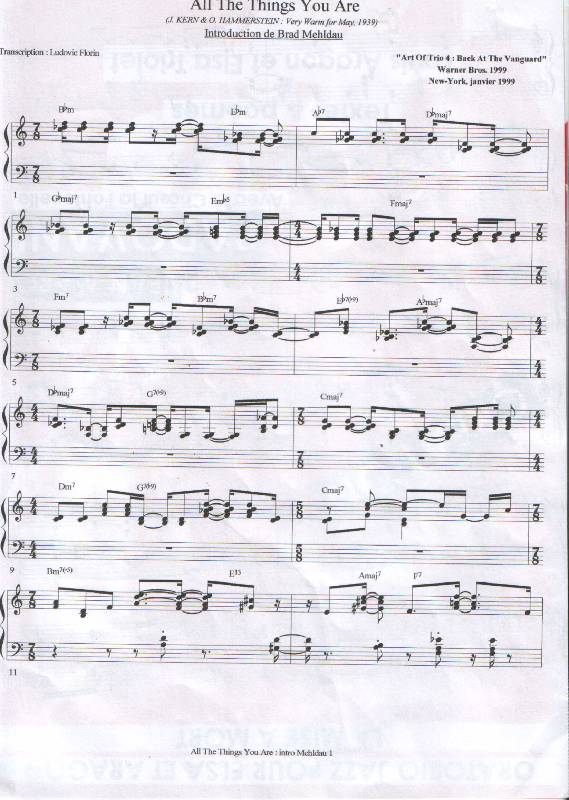

Overall, I am happy with it and it captures the beauty of the piece. These could be written in a number of ways. Of course, there are many strange key signatures as you would expect from Chick. Now, the left hands plays a beat whilst the dominant chord is held. The original version was a lot fancier but decided to retain the simplicity of this section. The solo piano bars from 233 to 238 are truly exquisite and took some working out. The piece builds up wonderfully to bar 233 - which is the crux of the piece.

Of course, the problem is that it's an *orchestral* piece and, by definition, not every note can be replicated by two hands.Īnyway, I continued to get enjoyment from it (mostly) until at the start of 2019.Īt this point, I decided I really needed to complete it 100% to my satisfaction. I first transcribed this composition over 13 years ago but was never fully satisfied. However, this track stands out like a beacon - as if Chick felt he should add something light and airy. Overall, the album is dark and moody and I don't like it. This piece, Brasilia, comes from Chicks album, Lyric Suite For Sextet. This is surely one of Chick's most beautiful compositions! If anyone fancies having a go.magic! Cheers.Ĭhick Corea Brasilia - a new transcription for t Only a handful of Brazilians can compose in this style, to this level (principally Hermeto, Guinga, Itibere and Nene). Its in the tradition of Hermeto's "alice in wonderland" style choros. This one's extremely difficult to do to hear the wood from the trees etc. I asked Itibere if he had the sheet, but he said it was lost.Dam! Here's the only recorded version of the comp by Qt Maogani (the best guitar arrangers for guitar quarterts in Brazil) (there's another YT vid which says its "Pra Lucia" but its a different comp, so just use the link I've shown). Sorry to post so many requests.this one's something special (not jazz, but with jazzy chords).written by Hermeto's superb bassist Itibere Zwarg.an exquisite wistful progessive choro he dedicated to his ex-wife Lucia. This post contains the following attachment types: Instead of using chords, the interest in this head mainly lies in the dissonant (I am almost tempted to say atonal), rhythmically-complex melodic counterpoint between Shorter's saxophone part and the bass part. Despite this, I do prefer the more recent, fast, and loose live versions which Shorter has played with his "Footprints Quartet." Besides the simple tonic-to-dominant harmonic vamp in A minor over which solos are played on the 1988 version, the majority of the head lacks many clearly discernible chords, and I have only notated the chords of which I am fairly certain. I transcribed this while listening to the version of the tune which appears on Shorter's 1988 album of the same name, mainly because it is a clear studio recording and it is played relatively slowly.

This is a transcription of the head of the piece "Joy Ryder" by Wayne Shorter.


 0 kommentar(er)
0 kommentar(er)
